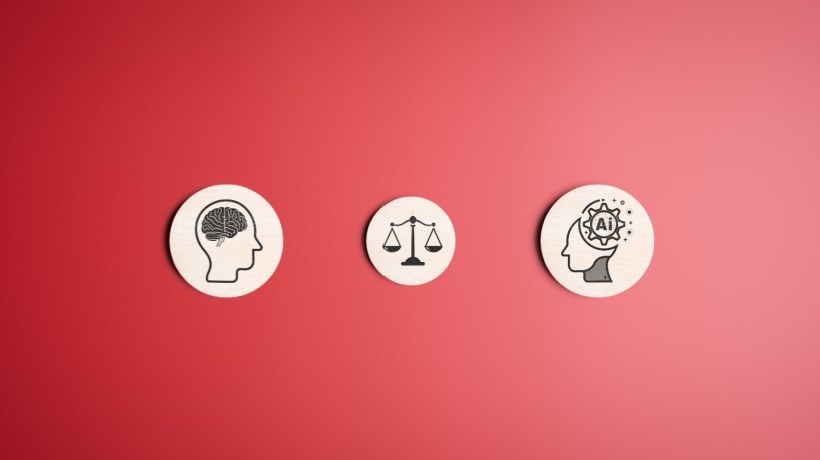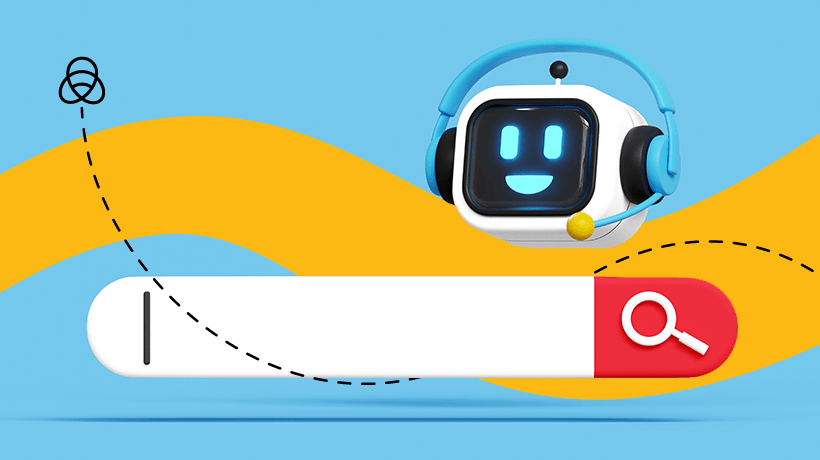What Gives Out Content That's Written By AI?
The popularity of tools like ChatGPT, Google Gemini, and other AI writing assistants has completely changed how we create and consume content. Whether it's a high school essay or a product description, text written by AI is an easy and quick solution. And why shouldn't it be, since AI is getting better at writing content? In fact, it's getting harder and harder to tell if something is written by a person or AI. From emails and job applications to entire books, AI can write anything you want.
While this tech can be helpful, it also raises some concerns. How can you tell if something was written by AI? And why does it matter? Well, in education, academic integrity is everything. If students submit AI-written assignments, it undermines the whole purpose of school, which is developing critical thinking, problem-solving, and communication skills. Then there's content creation like journalism, marketing, blogging, and others. When you read articles, you expect experts behind the content. If AI takes over without a real understanding of the subject or the audience, it can hurt your trust. And let's not forget that not everyone uses AI responsibly. It can be used to spread misinformation, spam, or even propaganda.
Whether you're an educator, a content editor, or want to know who wrote what you're reading, knowing the signs can help distinguish human writing from artificial writing. In this article, we'll walk you through the most common signs that a piece of text was likely written by AI so you're always in the know.
6 Signs That Suggest Something Is Written By AI
1. Formal Or Neutral Tone
One of the easiest ways to spot content written by AI is by its tone, and more specifically, how neutral or formal it sounds. AI often writes in an academic tone that doesn't quite feel like everyday human communication. While AI-written text is grammatically correct, it lacks personality, energy, and that tone we bring when we write or talk. This is especially noticeable in content that should be casual, like blog posts, emails, or social media captions. If the tone feels too formal, it could be AI.
2. Repetitive Phrases
Keep an eye out for repetition. AI tends to use the same ideas or phrases more often than a human would. Why? Well, AI is trained to predict what sounds right and not necessarily what sounds natural. So, when it doesn't have much to say or is trying to meet a word count, it often repeats itself without adding anything new. You might also notice entire ideas being mentioned again and again, but rephrased. Of course, humans can be repetitive, too, especially when rushing or not editing carefully. However, if it's too repetitive, it's most likely AI-written.
3. Lack Of Emotion
AI-generated writing usually doesn't feel human. Sure, the grammar is correct, and the facts may be right, but emotion is missing. When people write, they express their experiences, opinions, and feelings. Whether it's a personal blog post or a product review, you can often find hints of humor, sarcasm, excitement, disappointment, etc. AI, on the other hand, can't imitate that. Hence, if the content you're reading sounds emotionless, it might be written by AI. However, keep in mind that AI can mimic emotion with the right prompts, but it still can't feel truly human.
4. Unnatural Flow
Human writers usually have a natural flow when they move from one thought to another. We tend to express ourselves in an organic way, using different tones, correct timing, or even emotion to prove our point. AI, on the other hand, often struggles with this. It may add transition words because it thinks that's how people connect different points. While this isn't wrong, when these words are used unnaturally or too often, the writing seems robotic. A common example is a sudden change of topic or a repetitive conclusion. The best way to catch this is to read the text out loud. If you feel the points aren't properly connected, you're most likely reading AI content.
5. Incorrect Information
One of the signs that a piece of content is written by AI is "hallucination." This means that the AI makes things up, and they even sound legit. This includes false facts, wrong dates, nonexistent sources, and mixed-up information. It doesn't necessarily mean the content is 100% fake, but it shows that the tool filled in the parts it didn't know about with imaginary facts. Unlike a human writer, who typically fact-checks or cites real sources, AI can unintentionally add some fiction while sounding very convincing. That's why you should double-check any quote, statistic, or date.
6. No Sentence Variety
AI tends to write sentences that look perfect, but all have a certain subject-verb-object format. For example, they look like this: "The company launched a new product. The product received great feedback. The team celebrated the success." While not incorrect, it's too robotic. Human writers, on the other hand, add variety to their sentences, use rhetorical questions and transition words, and give emphasis. AI-generated text doesn't do this, so if a paragraph feels dull, it might not be human-made. Another is pacing. Humans tend to speed up or slow down depending on what we're saying. We might rush through details and focus on other important things. AI, on the other hand, often gives everything equal attention.
When Is It Acceptable To Use Content Written By AI?
AI can be helpful, so using it doesn't mean you're cheating or being unethical. In fact, there are plenty of ways AI can boost your productivity in an acceptable way. For instance, you can use it to brainstorm titles and article outlines, summarize long pieces of text, and simplify content, making it more accessible.
Yet, there are cases where using AI crosses the line. If you're turning in an essay written entirely by AI, it's dishonest. Likewise, passing off AI-generated content as your own in a professional setting, especially without checking for errors or originality, is unethical. The same goes for using AI to create fake news, plagiarize existing work, or impersonate someone else.
What you should do is be transparent. If AI helped you with content in any way, it's good to let people know. After all, AI is a tool; it's how you use it that makes it ethical or unethical.
Conclusion
As AI tools advance, it's getting harder to tell whether something is written by AI. But that's exactly why staying vigilant when reading content online is so important. If something feels off or too formal, double-check it. And while AI can be useful, you need to stay aware of how it's being used. The goal isn't to fear AI but to stay informed and thoughtful in how we engage with content, especially as it's getting more difficult to distinguish between human and artificial writing.









